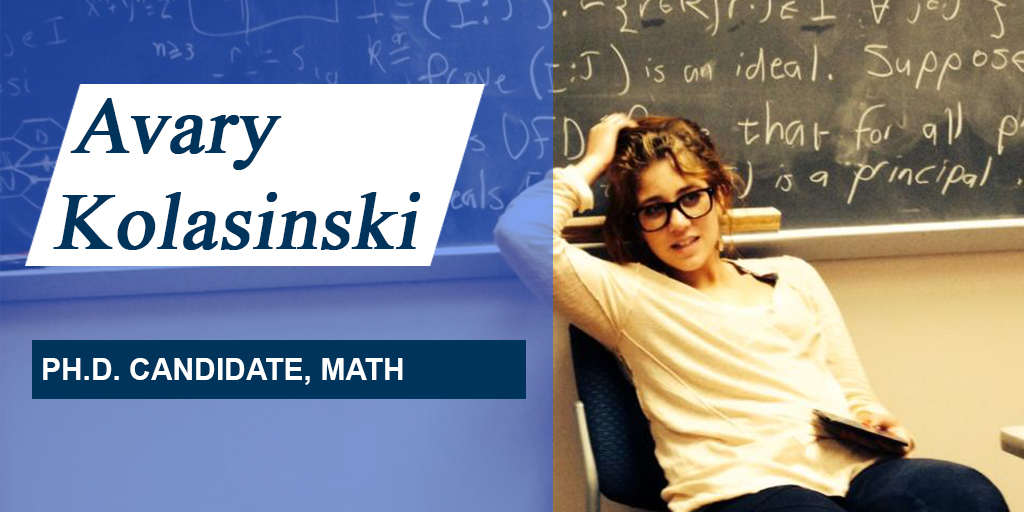
The opportunities and applications that can stem from subjects like Numerical Analysis and Scientific Computing seem to be endless in a world where technology grows at a rapid pace. KU’s Avary Kolasinski has utilized her love for these subjects to produce meaningful research and to program theoretical results. The applications of this research affect a variety of fields including but not limited to physics and computer science.
Meet Avary, a 6th-year Mathematics Ph.D. student who is currently in her last semester at KU. Learn about how her research involving variational mesh adaptation has led to a job after graduation at the Lawrence Livermore National Laboratory and what advice she has for graduate students seeking funding for their research.
Hometown: West Linn, OR
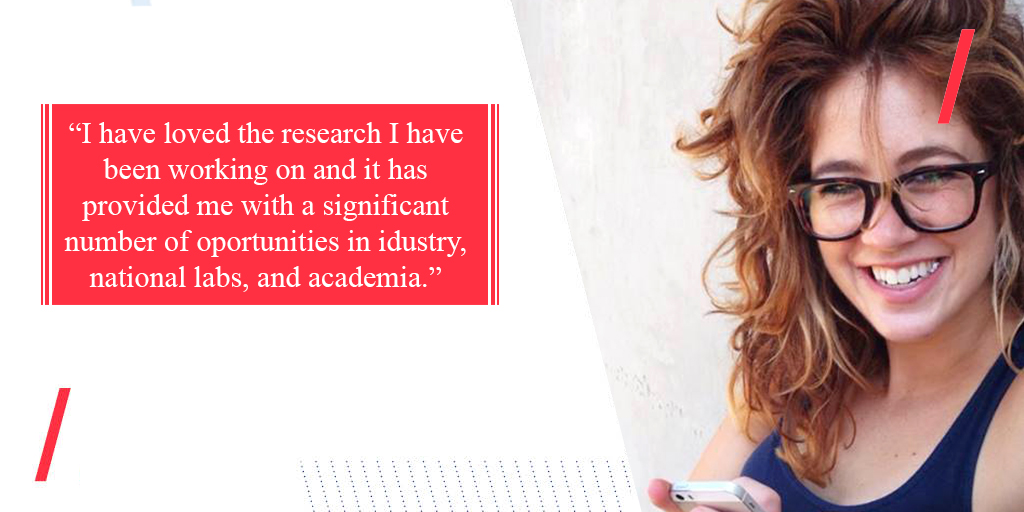
What are your research interests and why did you choose them?
I study Numerical Analysis and Scientific Computing, or more specifically, moving mesh adaptation and generation. In simple terms, I study methods to move grid points in order to better approximate a solution to a problem or better represent a curve or surface. When I first came to KU, I took my first class in Numerical Analysis and absolutely loved it. Before that, I didn’t really know what I wanted to study but that class made it easy for me to decide at least what direction I wanted to go in. Then, after talking with some of the professors, I decided on moving to mesh adaptation for a few reasons. The first is that it was not just solely theoretical but it also included programming the theoretical results, like many applied mathematics research. Secondly, I felt as though I could combine the main mathematics subjects that I enjoyed into one research topic. I have loved the research I have been working on and it has provided me with a significant number of opportunities in industry, national labs, and academia. The topic is very interesting to a variety of people in various subjects including physics, computer science, etc. and I am always excited to share about it.
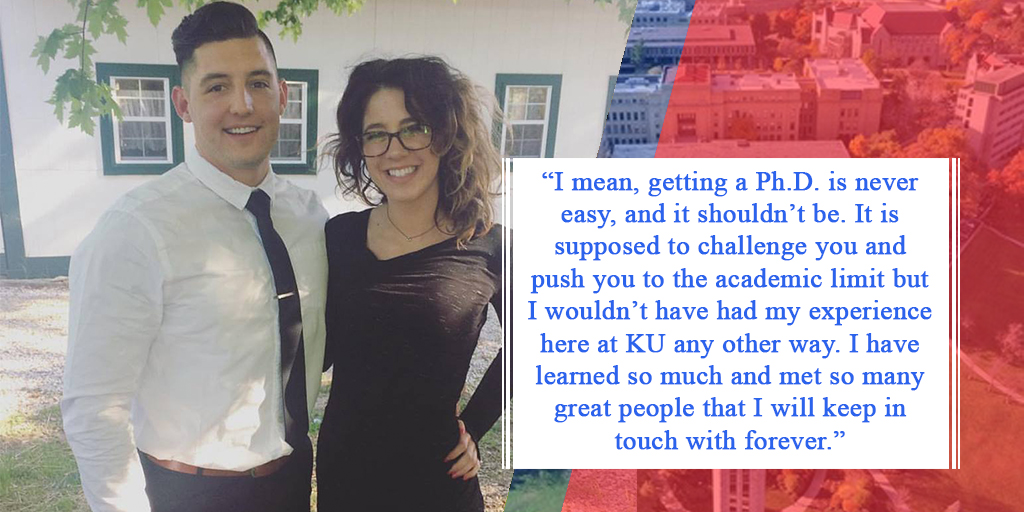
What was that journey like?
The journey has been difficult, to say the least. There, of course, have been ups and downs but whenever I got stressed out I always thought “if I could just give up now what else would I want to be doing?” and the answer was nothing else. I truly love the research even in stressful times. I’ve absolutely loved the community in the Mathematics Department, everyone is so helpful and friendly that it makes the tough times of graduate school much easier. I mean, getting a Ph.D. is never easy, and it shouldn’t be. It is supposed to challenge you and push you to the academic limit but I wouldn’t have had my experience here at KU any other way. I have learned so much and met so many great people that I will keep in touch with forever.
Tell us what your Ph.D. thesis is in under 200 characters:
I study variational mesh adaptation. You can think of it as starting with a grid while keeping the lines between the points the same. We move the points around to attain a better approximation for a solution to a problem.
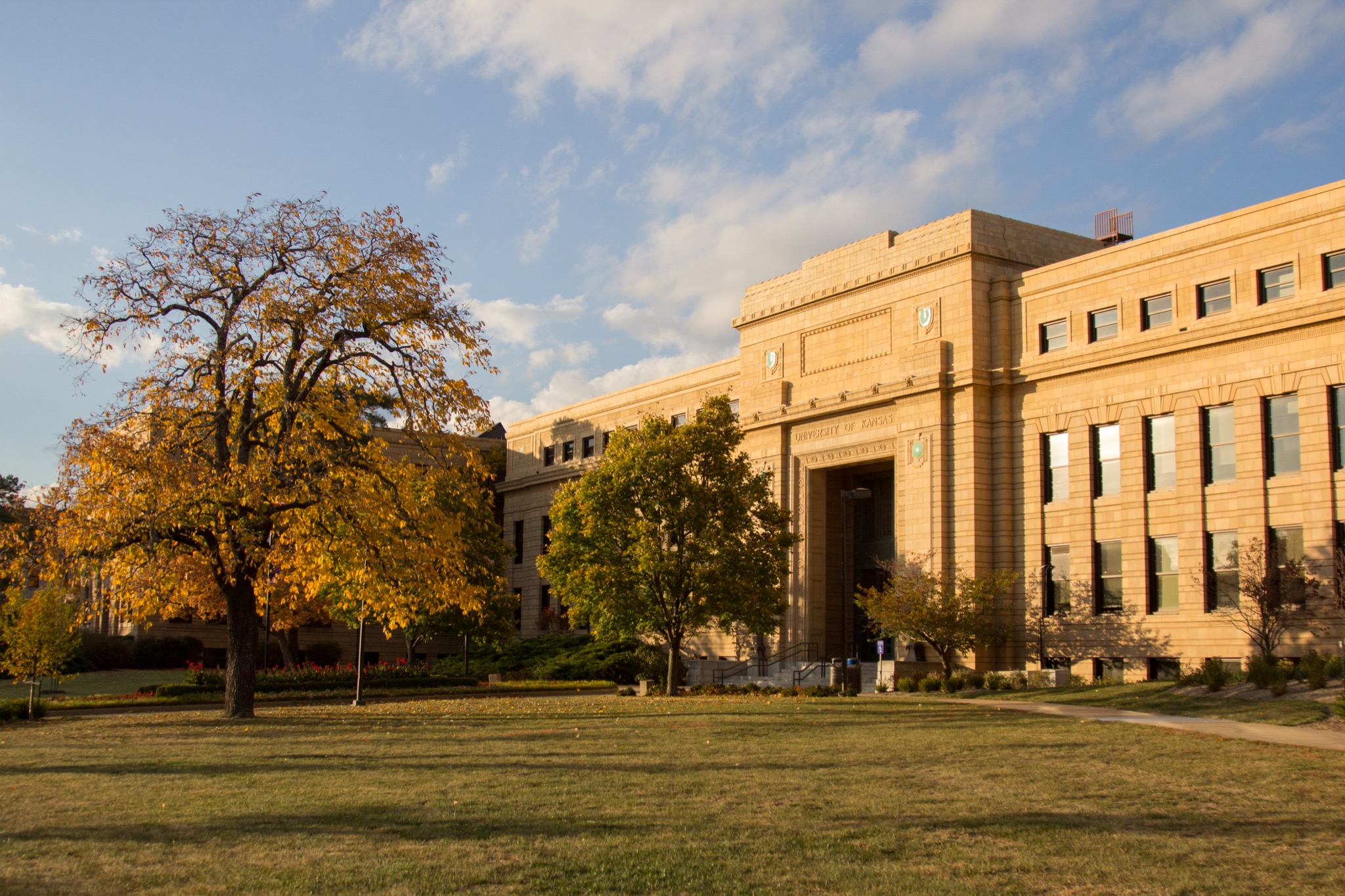
What is one thing you think everyone should know about your research project or research interests? This might be a commonly held belief that your research questions or complicates.
Getting a Ph.D. in Mathematics opens A LOT of doors, not just to teach. The one question I get every time I say that I am in graduate school for mathematics is “oh, what do you want to do with that, teach?” I completely understand this question because before coming to graduate school, I didn’t really have a full understanding of all of the things you can do with mathematics research, but let me tell you, there are tons of opportunities. Depending on what you research, you can work for companies such as Siemens, Cerner, or Intel, you can work for different National Lab’s around the US like Lawrence Livermore, NASA, and Argonne, or you can go into academia at any university. It is really amazing how many doors knowing mathematics can open. One day I do hope to come back to academia to do research and teach because I do truly enjoy teaching; however, there are other paths one can take with math.
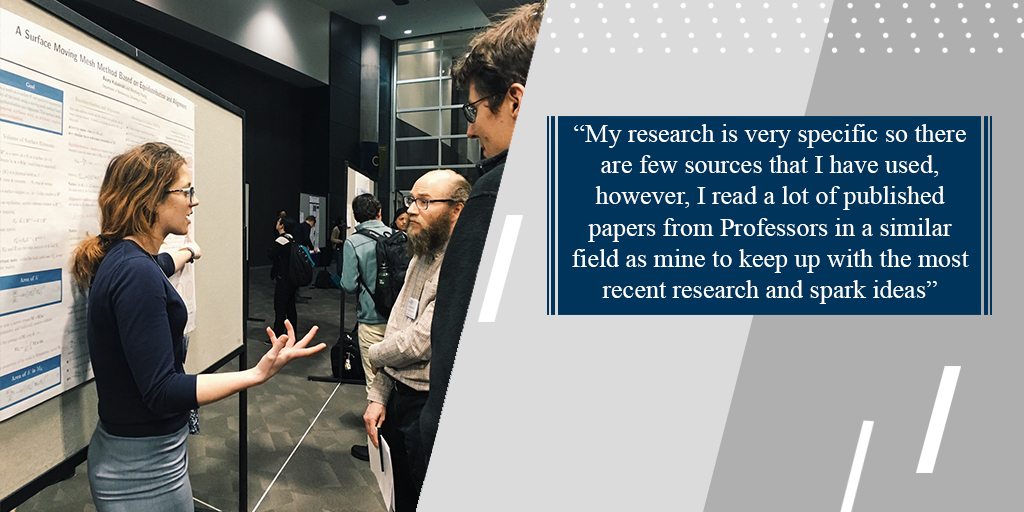
Where are you conducting your research? In archives? In laboratories? What are your sources?
I conduct my research in my office. Mathematics research is all about reading and studying to come up with new ideas and methods. I also work in Matlab, a programming language, to numerical test and prove my results, but that is all done on a computer. My research is very specific so there are few sources that I have used; however, I read a lot of published papers from professors in a similar field as mine to keep up with the most recent research and spark ideas. (All of those sources I have used can be found in my thesis.)
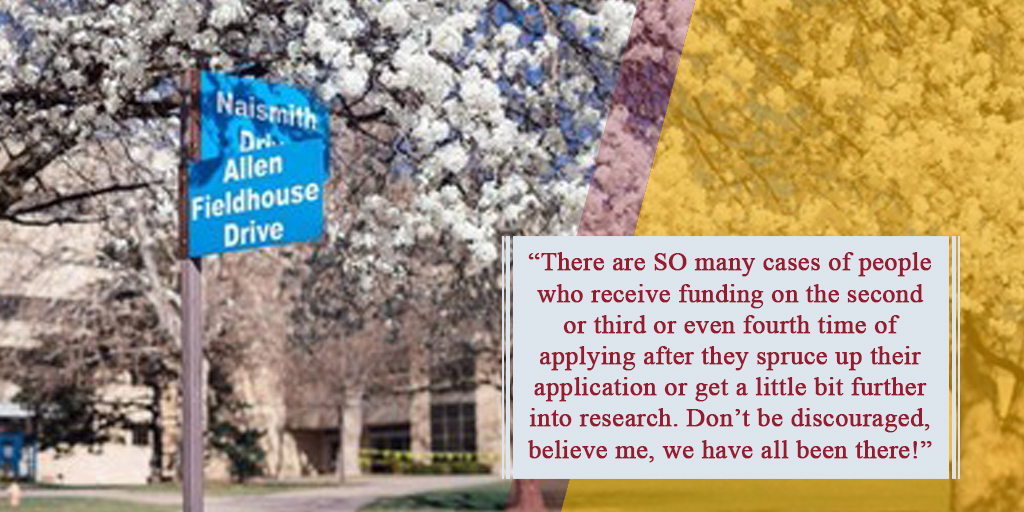
What advice would you give students applying for research funding opportunities?
Definitely consult with a professor who has applied and received funding before. It is a very detailed and lengthy process and sometimes has to do with luck. However, without the help of some professors, I would have not known where to begin or how the applications should be written, etc. Also, if you don’t get the funding the first time, keep applying! There are SO many cases of people who receive funding on the second or third or even fourth time of applying after they spruce up their application or get a little bit further into research. Don’t be discouraged, believe me, we have all been there!
Give a shout-out to a professor, mentor, advisor, or someone at KU who has helped you?
I’d actually like to give a shout-out to three professors. The first is my advisor, Dr. Weizhang Huang, who has molded me into the researcher I am today and one that I am very proud to be. He has been an amazing advisor over the years and I am very grateful to have had him as mine. Additionally, I’d like to give a shout-out to Dr. Estela Gavosta and Dr. Agnieszka Miedlar, both who have gone out of their way on countless occasions to help me in my career and in my life. They have both been so supportive and it has truly meant the world to me that they have been so kind and helpful throughout my career. One day I hope I can be the mentor to someone as they have both been to me.
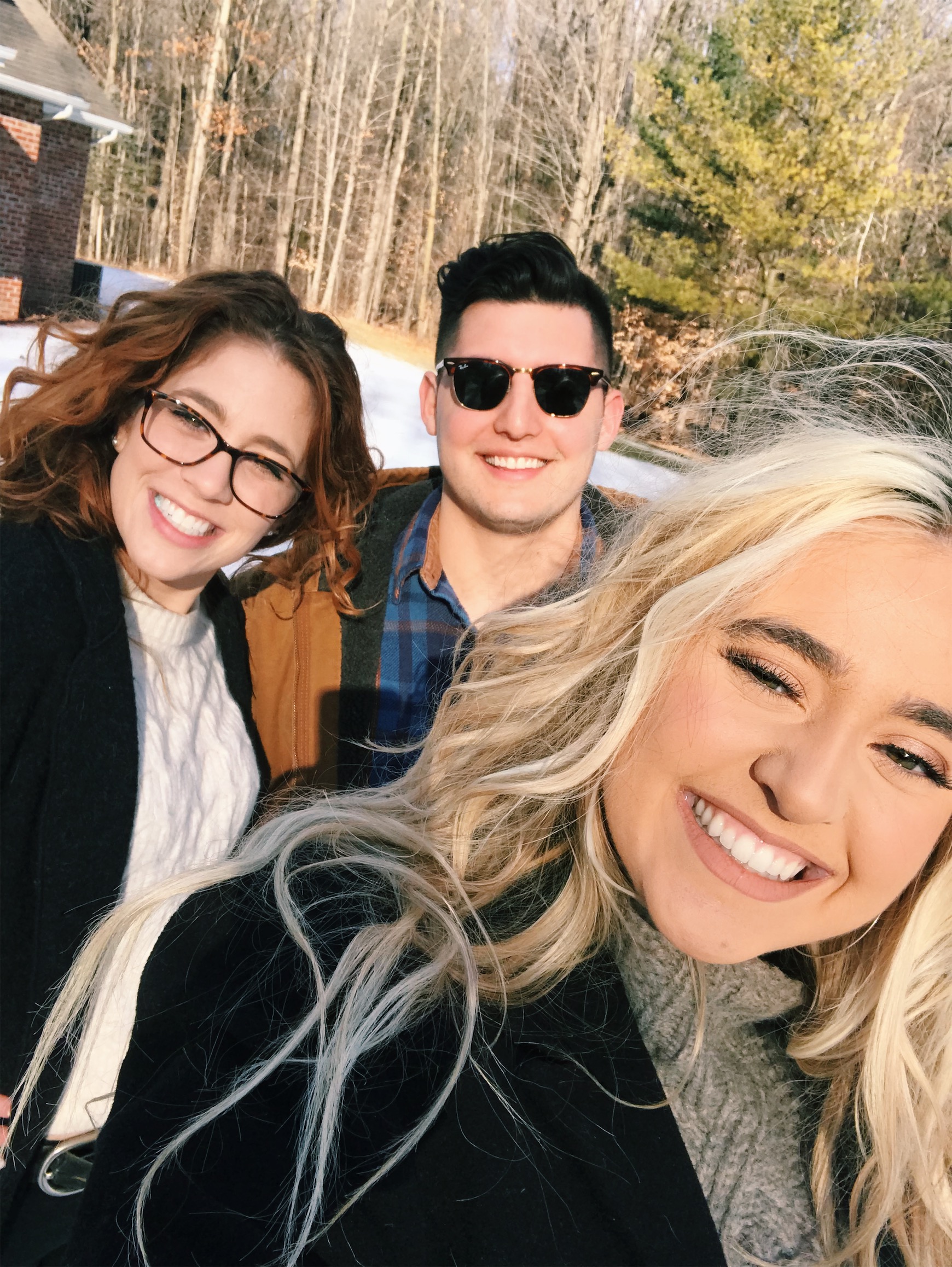
What is the most valuable experience you have had while studying at KU?
I don’t think I’d be able to narrow it down to one experience. Every part of my time here has been extremely valuable and I have loved every part of it.
What do you plan to do after you graduate from KU?
I accepted a research PostDoc position at Lawrence Livermore National Laboratory. I am extremely excited. The research at the lab is advance and cutting edge and the community there is absolutely amazing. It is going to be a great experience.
What motivates you?
I love to learn. Especially learning to produce new results, formulate new methods, and discover new insights.
Be like Avary. Discover what you love and find ways that it can be applied in the world. For information about KU’s Math program, visit their web page and learn about the “countless” opportunities that they offer.